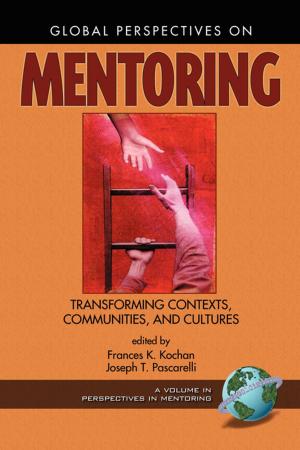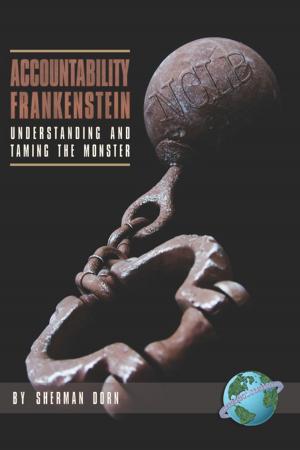Cultural Psychology of Recursive Processes
Nonfiction, Health & Well Being, Psychology, Research, Social Psychology| Author: | ISBN: | 9781681230207 | |
| Publisher: | Information Age Publishing | Publication: | May 1, 2015 |
| Imprint: | Information Age Publishing | Language: | English |
| Author: | |
| ISBN: | 9781681230207 |
| Publisher: | Information Age Publishing |
| Publication: | May 1, 2015 |
| Imprint: | Information Age Publishing |
| Language: | English |
Cultural Psychology of Recursivity illustrates how recursivity, often neglected in the social sciences, can be an important concept for illuminating meaningmaking processes. Recusrivity is a fascinating though abstract concept with a wide array of often incompatible definitions. Rooted in mathematics and linguistics, this book brings recursion and recursive processes to the foreground of psychological processes. One unifying claim among the diverse chapters in this book is that recursion and recursive processes are at the core of complex social and psychological processes. Recursion is bound up with the notion of returning, reexamining, reflecting and circling back, and these processes allow for human beings to simultaneously distance themselves from the hereandnow settings (by imaging the past and future) while being immersed in them. The objective of this book is not simply to celebrate the complexity of human living, but to extend the notion of recursion, recursivity and recursive processes into the realm of social and psychological processes beyond the arenas in which these ideas have currently thrived. Cultural Psychology of Recursivity shows that in spite of the difficulty in defining recursivity, selfreferencing (looping), transformation (generativity), complexity, and holism constitute its core characteristics and provide the basis for which authors in this book explore and elaborate this concept. Still, each contribution has its own unique take on recursivity and how it is applied to their phenomenon of investigation. Chapters in this book examine how recursive processes are related to and basic aspects of play and ritual, imitation, identity exploration, managing stigma, and commemorative practices. This book is intended for psychologists, sociologists, and mathematicians. Use of the book in postgraduate and graduate level of university teaching is expected in seminar format teaching occasions.
Cultural Psychology of Recursivity illustrates how recursivity, often neglected in the social sciences, can be an important concept for illuminating meaningmaking processes. Recusrivity is a fascinating though abstract concept with a wide array of often incompatible definitions. Rooted in mathematics and linguistics, this book brings recursion and recursive processes to the foreground of psychological processes. One unifying claim among the diverse chapters in this book is that recursion and recursive processes are at the core of complex social and psychological processes. Recursion is bound up with the notion of returning, reexamining, reflecting and circling back, and these processes allow for human beings to simultaneously distance themselves from the hereandnow settings (by imaging the past and future) while being immersed in them. The objective of this book is not simply to celebrate the complexity of human living, but to extend the notion of recursion, recursivity and recursive processes into the realm of social and psychological processes beyond the arenas in which these ideas have currently thrived. Cultural Psychology of Recursivity shows that in spite of the difficulty in defining recursivity, selfreferencing (looping), transformation (generativity), complexity, and holism constitute its core characteristics and provide the basis for which authors in this book explore and elaborate this concept. Still, each contribution has its own unique take on recursivity and how it is applied to their phenomenon of investigation. Chapters in this book examine how recursive processes are related to and basic aspects of play and ritual, imitation, identity exploration, managing stigma, and commemorative practices. This book is intended for psychologists, sociologists, and mathematicians. Use of the book in postgraduate and graduate level of university teaching is expected in seminar format teaching occasions.















